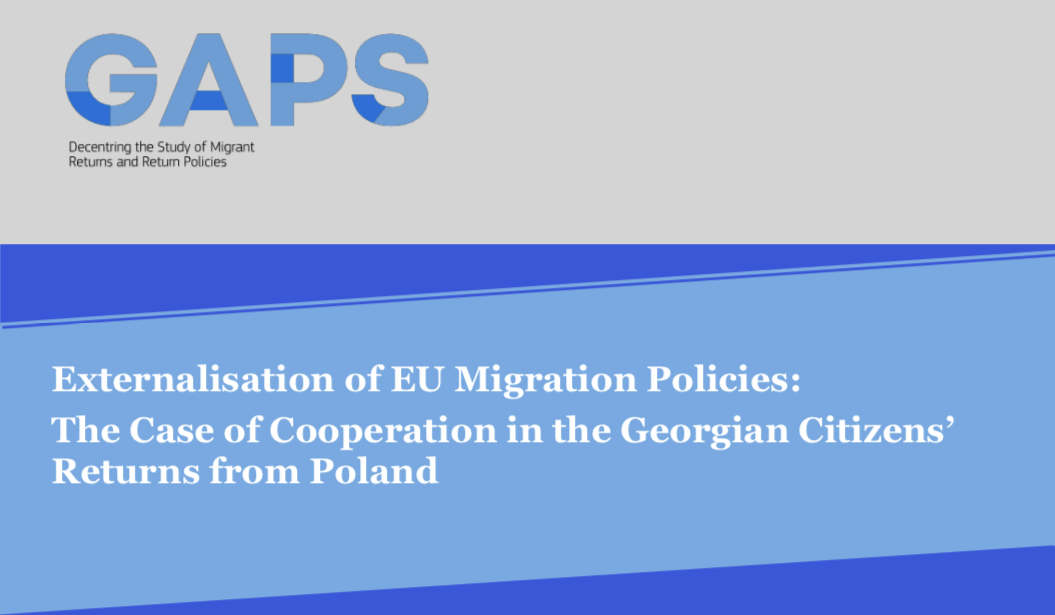Externalisation of EU Migration Policies: The Case of Cooperation in the Georgian Citizens' Returns from Poland
Executive Summary:
Migration remains an essential factor in the dynamics of EU politics. This working paper aims to broaden our understanding of the cooperation mechanism between the EU and Georgia in the context of the EU’s externalisation of migration policies. We focus on the EU Member State – Poland, the sending country, and Georgia, the country receiving returnees, one of six Eastern Partnership members. We pay particular attention to the returns of Georgian citizens from Poland (with various levels of coercion), as they represent one of the
largest groups of returned foreigners under Poland’s return practices. At the same time, Georgia remains a country strongly committed to integration with the EU structures. The paper draws on the qualitative material and data collected during fieldwork on Georgia from February to May 2024. The main part of the research was carried out on-site in Tbilisi. Follow-up interviews were conducted in Poland, mainly online. We conducted 25 individual in-depth interviews with representatives of international organisations, public institutions,
non-governmental organisations, and other experts who had knowledge about returns to Georgia and the reintegration of Georgian citizens. This work was supplemented with desk research regarding the legal framework and return infrastructure in Poland and Georgia and the reintegration framework in the latter. The results reveal the untapped potential of the cooperation between Polish and Georgian institutions, which could make the returns more satisfying for migrants and – consequently – more efficient for the EU policies. The paper suggests, among other things, strengthening 1) information dissemination to prospective returnees before departure and 2) the role of local organisations in Georgia in assessing business plans within the reintegration programmes.
Please find the entire DOI report by clicking the button below:

